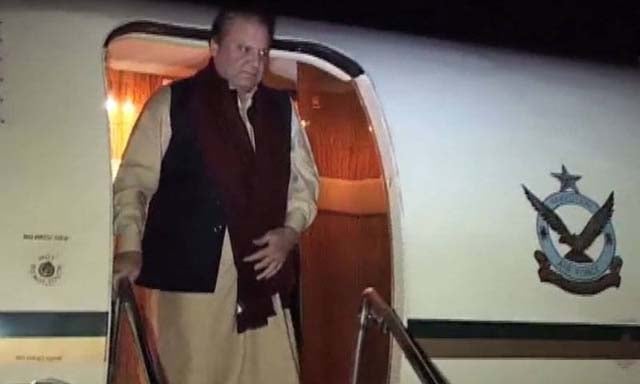
LAHORE, Pakistan, Oct 20, 2023 (BSS/AFP) - Three-time Pakistan prime minister
Nawaz Sharif will return from exile eager to make yet another comeback in a
country mired in political and economic chaos.
The 73-year-old is one of the nation's wealthiest men, with a fortune earned
in the steel business, but is admired by supporters for his approachable "man
of the soil" demeanour.
Often draped in a red Gucci scarf, his political fortunes have risen and
fallen on his relationship with Pakistan's powerful military establishment --
the country's true kingmakers.
Fans call him "the Lion of Punjab", the eastern and most populous province
where his support is strongest, and he is known to parade big cats at
extravagant political events drumming up support.
Despite a conviction for graft hanging over him, a court this week granted
him protective bail until Tuesday -- paving the way for a welcome home rally
that has been on the cards for months.
After four years of self-imposed exile in the United Kingdom, it will be a
major test of clout for one of the big beasts of Pakistani politics.
- Private power -
Sharif is widely believed to have continued pulling the strings of his
Pakistan Muslim League-Nawaz party, even after his brother Shehbaz led them
to power last year in a coalition ousting Imran Khan.
Nawaz first took power in 1990 with the blessing of the establishment, but
was forced out three years later by corruption allegations -- a theme that
has dogged his career.
He has lived for years in Saudi Arabia and London -- where the Sharif family
have extensive luxury properties -- only to return to Pakistan each time with
renewed zeal.
Stung by the nationalisation of the family steel business -- which he later
regained control of -- Sharif is a fiscal conservative and champion of
economic liberalisation and free markets.
He oversaw the privatisation of several key state enterprises -- including
banks and energy producers -- in a process critics say was riven by
corruption.
He was also one of the key drivers of the $60 billion China-Pakistan Economic
Corridor (CPEC) that underpins relations between Islamabad and Beijing.
During his various stints as premier he was accused of stacking courts with
loyalist judges, tinkering with the constitution, and rigging provincial
elections to shore up his party's power bases.
- Roaring back -
His second reign of power lasted two years and ended in 1999 with him deposed
in a military coup after plotting to sideline his army chief of staff, Pervez
Musharraf.
Sharif narrowly avoided the death sentence in a hastily convened trial before
being sent into self-imposed exile.
More than a decade later and he was back in power, in part because of his
brother's diligent performance as chief minister of Punjab, regarded
Pakistan's most powerful constituency.
But fresh graft allegations emerged when his children were named in the
Panama Papers leak for holding offshore companies.
He was later convicted over separate corruption allegations and disqualified
from office for life. It was the third time that he failed to complete a full
term.
Less than a year into a seven-year prison sentence he was granted permission
to travel to the United Kingdom for medical care and then declined to return.
But with Khan falling spectacularly out of favour with the military, Sharif's
fortunes began to change last year.
His return has been smoothed by legal changes downsizing the period lawmakers
can be barred from elections.
Analysts also say there has likely been a deal with the establishment to
prevent further court challenges.
But the "Lion of Punjab" must also win over a population weary of dynastic
politics and weighed down by economic crisis.